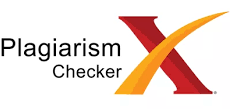Two Stage Analysis: Analisis Technical Efficiency pada Perusahaan Asuransi Jiwa Konvensional dan Syariah, 2012-2020
Abstract
Introduction to The Problem: The growth of Islamic Life Insurance and Conventional Life Insurance has increased quite rapidly when compared to other types of insurance. However, the results of empirical research show that the efficiency level of Islamic Life Insurance does not reach the level of efficiency. The source of inefficiency in Islamic Life Insurance in Indonesia lies in four variables, such us: total assets, commission fees, gross contribution and investment income. In addition, most of the efficiency studies focused on measuring banking efficiency.
Purpose: This study aims to measure technical efficiency and identify factors that affect technical efficiency of life insurance.
Methodology: In analyzing this research, the writer applied Two Stage Analysis, where the first phase of technical efficiency score calculation uses the Stochastic Frontier Approach (SFA) with an intermediation approach, the output variable being income investment, while the input variable is the commission fee and total operational costs; the second phase is a regression analysis that determines the determinants of technical efficiency scores, with the independent variables consisting of total asset, profitability life insurance company, and investment expenditure.
Findings: The results of this study indicate that during the span of the study period there were no life insurance company (conventional and sharia) that obtained perfect efficiency scores with a score of one. the average efficiency score of life insurance bank generated through parametric method (SFA) of 72,09 percent, so there are still 27,91 percent of opportunities that can be optimized to reach the operational level the most efficient. Based on the results of the study also shows that the main determinant that increases banking efficiency is total asset and investment expenditureKeywords
Full Text:
PDFReferences
Al-Amri, K. (2015). Takaful Insurance Efficiency in The GCC Countries. Journal Sultan Qaboos University, Vol.31 No.3,2015 pp.344-353.
Ardianto, M. I. R, & Sukmaningrum, P.S., (2020). “The Efficiency Analysis Of Sharia Life Insurance In Indonesia And Family Takaful In Malaysia Using Data Envelopment Analysis Method (Case Study On Al Abrar's Shariah Financial Service Cooperative)”. Jurnal Ekonomi Syariah Teori dan Terapan, 7 (2): 319-331
Chen, C.M., Delmas, M.A., Lieberman, M.B. (2015). Production frontier methodologies and efficiency as a performance measure in strategic management research.
Cummins, J.D., Weiss, M.A., (2013). Analyzing firm performance in the insurance industry using frontier efficiency and productivity methods. In: Handbook of Insurance. Springer, New York, pp. 795–861.
Eling, M & Jia, R. (2019). Efficiency and Profitability in the global insurance industry. Pacific-Basin Finance Journal 57.
Eling, M., & Luhnen, M. (2010b). Efficiency in the international insurance industry: A cross-country comparison. Journal of Banking and Finance, 34(7), 1497–1509.
Greene, W.H., Segal, D., (2004). Profitability and efficiency in the U.S. life insurance industry. J. Prod. Anal. 21 (3), 229–247
Khan, A., & Noreen, U. (2014, May). Efficiency Measure of Insurance vs Takaful Firms Using DEA Approach: A Case of Pakistan. Journal Islamic Economic Studies, Vol. 22 No.1, May 2014 (139-158).
Khan, A., & Noreen, U. (2014). “Efficiency Measure of Insurance vs Takaful Firms Using DEA Approach: A Case of Pakistan”. Journal Islamic Economic Studies, 22 (1): 139-158
Leverty, J. T., & Grace, M. F. (2010). The robustness of output measures in property Lliability insurance efficiency studies. Journal of Banking and Finance, 34(7), 1510– 1524
Mansor, S. A., & Radam, A. (2000). “Productivity and Efficiency Performance of Malaysian Life Insurance Industry”. Jurnal Ekonomi Malaysia, 34: 93-105.
Ningsih, Y. W., & Suprayogi, N. (2017). “Analisis Efisiensi Asuransi Umum Syariah di Indonesia Tahun 2013- 2015: Aplikasi Metode Data Envelopment Analysis”. Jurnal Ekonomi Syariah Teori dan Terapan, 4(9), 575-772.
Rahman, M. A. (2013). “Comparative Study on the Efficiency of Bangladeshi Conventional and Islamic Life Insurance Industry: A Non-Parametric Approach”. Journal Asian Business Review, 2 (3): 1-15.
Sabiti, M. B., Effendi, J., & Novianti, T. (2017). “Efisiensi Asuransi Syariah di Indonesia dengan Pendekatan Data Envelopment Analysis”. Jurnal Al-Muzaraah, 5 (1), 69-87.
Shafique, M. N., Ahmad, N., Ahmad, H., & Adil, M. Y. (2015). “A Comparative Study Of The Efficiency Of Takaful And Conventional Insurance In Pakistan”. International Journal Of Accounting Research, 2 (5): 29-41.
Surifah. 2011. “Kepemilikan Ultimat, Tingkat Risiko, Efisiensi dan Kinerja Industri Perbankan di Indonesia”. Jurnal Siasat Bisnis 15 (1): 37-53.
Tuffahati, H., Mardian, S., & Suprapto, E. (2016) "Pengukuran Efisiensi Asuransi Syariah dengan Data Envelopment Analysis (DEA)." Jurnal Akuntansi dan Keuangan Islam, 4 (1): 1-24.
Sufian (2006), Tahir, Bakar dan Haron (2008), García (2012), Bhattacharyya dan Pal (2013), Dong, Hamilton, dan Tippett (2014), dan Miah dan Udin (2017).
Singh, A., & Zahran, Z. (2013). A Comparison of the Efficiency of Islamic and Conventional Insurers. Tower Watson Technical Paper.
Swink, M., Narasimhan, R., Kim, S.W., (2005). Manufacturing practices and strategy integration: effects on cost efficiency, flexibility, and market-based performance. Decis. Sci. 36 (3), 427–457.
Wagner, H., (2004). Internationalization speed and cost efficiency: Evidence from Germany. Int. Bus. Rev. 13 (4), 447–463.
Zakaria et al. (2016). The Intention to Purchase Life Insurance: A Case Study of Staff in Public Universities. Procedia Economics and Finance 27, 358-365.
Refbacks
- There are currently no refbacks.
Annual Conference on IHTIFAZ: Islamic Economic, Finance and Banking(ACI-IJIEFB)
Kampus 4 Universitas Ahmad Dahlan
Jl. Ring Road Selatan, Tamanan, Banguntapan, Bantul, Daerah Istimewa Yogyakarta 55191
Telp. (0274) 563515; Fax. (0274) 564604
E-mail : ihtifaz@uad.ac.id

_1.png)


